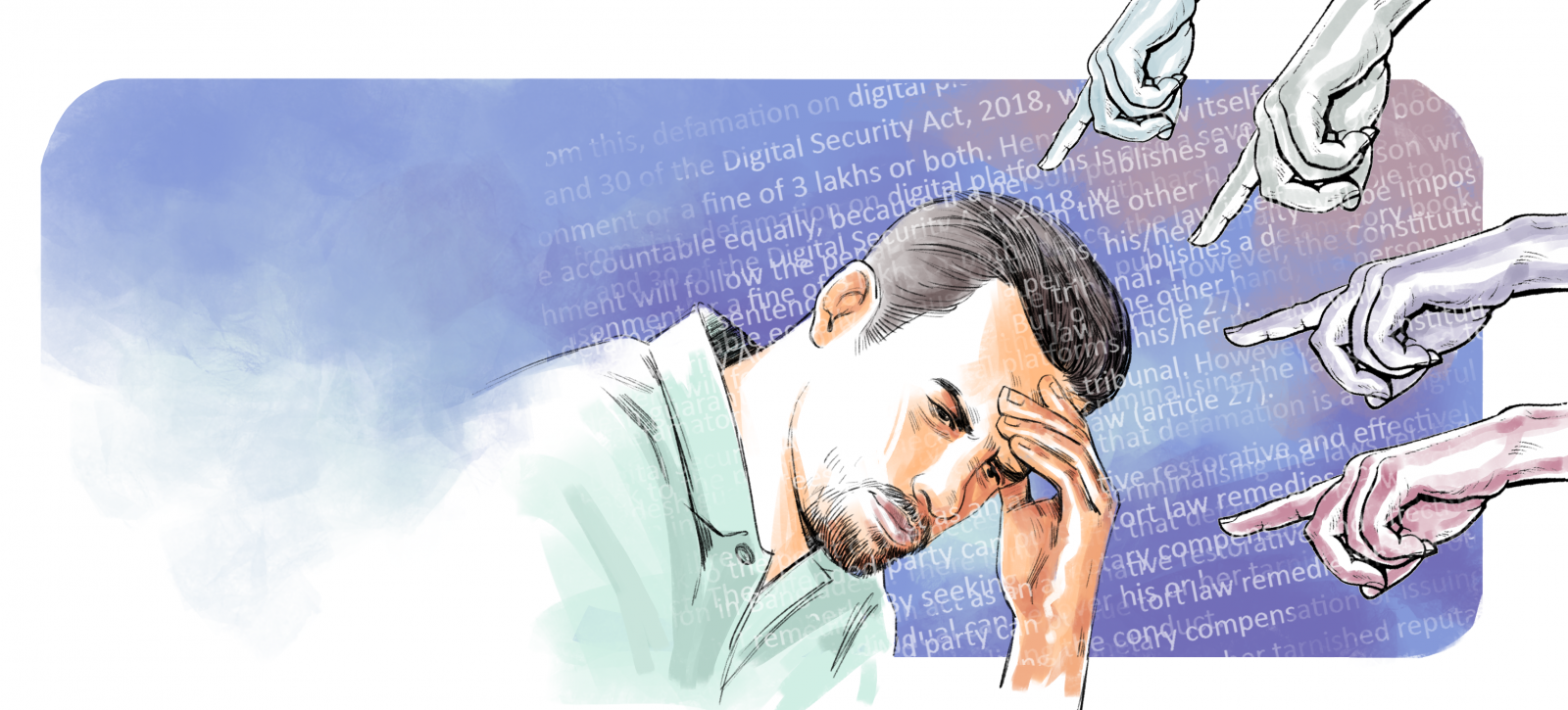Why defamation should be decriminalised
Harnessing the potential of tort law remedies such as monetary compensation and/or issuance of public apology can act as an alternative route in effectively curbing defamation, instead of criminalising it

The decriminalisation of defamation is currently considered the best practice at the international level. Many international organisations, like the European Court of Human Rights, the United Nations Rapporteurs, the Inter-American Commission on Human Rights, etc., want defamation to no longer be a crime.
This global movement leaves us with a question, "Why should criminal liability be abolished for defamation?" We need to look into the nature and justification of what constitutes a crime to answer this question.
According to Vinerian Professor of English Law Andrew Ashworth, criminalising any behaviour is to establish a threat of punishment for the wrongdoer and condemn those who do it nonetheless.
The severity of punishments in instances where the behaviour could have been regulated or censored by alternate means is a source of worry, because coercive laws and penalties should be reserved for the most severe crimes. At this point, a question may arise: are we over-criminalising the defamation law?
Lord Macaulay conceived defamation statutes for the first time in the Indian subcontinent in 1837 during the first draft of the Indian Penal Code, which was codified later in 1860. The offence of defamation was consistent with the general English common law.
In the British Indian subcontinent defamation was criminalised to safeguard the interests of the British King, the security of the state, and public order. As a result, Section 499 of the Penal Code, 1860, was enacted and has remained unchanged for 162+ years. Interestingly, the British lawmakers are no longer following this law as they decriminalised defamation.
Defamation is defined as "whoever, by words spoken or meant to be read, or by signs or visible representations, makes or publishes an imputation about a person with the intent to hurt, or knowledge or reasonable belief that such an imputation will harm, that person's reputation is said to be defamed, (Section 499, Penal Code 1860)". Section 500 of the same code provides punishment for defamation for up to two years of simple imprisonment or a fine or both.
Apart from this, defamation on digital platforms is also a severe crime under sections 25, 29, and 30 of the Digital Security Act, 2018, with harsh punishments like three years of imprisonment or a fine of three lakhs or both. Hence, the law itself is unable to hold people accountable equally, because if a person publishes a defamatory book, the punishment will be handed down according to the penal code. But, on the other hand, if a person writes a single defamatory sentence on digital platforms, his/her penalty will be imposed as per the Digital Security Act, 2018, by a separate tribunal. However, the Constitution of Bangladesh guarantees equality before the law (article 27).
Now, back to the point of the necessity of decriminalising the laws related to defamation in Bangladesh. There is no doubt that defamation is a wrongful act. However, civil remedies can act as an alternative and effectively curb the wrongful act.
The offended party can pursue tort law remedies that protect both parties' interests properly. By seeking monetary compensation or issuing a public apology, the defamed individual can recover his or her tarnished reputation, which is a far preferable option than criminalising the conduct.
This also means the accused does not have to endure the social humiliation of being referred to as a criminal after serving a sentence. Civil remedies also prevent intimidation of journalists when action is taken against media houses capable of defending themselves and bearing the brunt of litigation, as opposed to criminal sanctions that target individual journalists with limited ability to protect themselves against the state.
In numerous circumstances, it has been asserted that criminal defamation laws are used to harass and intimidate journalists, critics of large industries, and human rights campaigners. The threat of criminal penalties is used chiefly to silence critics of powerful and dominant individuals.
The media is the biggest victim of this, because the power of prosecution in a separate tribunal puts too much power in the government's hand, which can be used as a tool to suppress the people.
According to a project funded by the National Endowment of Democracy for the Centre for Governance Studies in Bangladesh, 754 cases were filed between January 1, 2020 and October 31, 2021. Most issues were related to defamation.
Criminalising defamation breaches a person's fundamental rights as well. Article 39 of Bangladesh's constitution guarantees freedom of speech, expression, and the press is subjected to reasonable restrictions. Reasonable restrictions mean that the restriction imposed on an individual's enjoyment of a right should not be arbitrary or unreasonable beyond what is necessary for the public good. Therefore, only necessary and proportionate use of the tools is important for curtailing fundamental rights.
If the restriction is excessive, it will have a "chilling impact on speech" and make it unconstitutional. Whether restrictions in laws are for the betterment of the public or not can be analysed by weighing the benefits. Regardless of who benefits - the government or the people - the standards of restriction should be generalised. In order to build trust among people, it is prudent to encourage openness.

Nusrat Tayba Mim is a Student of the Department of Law and Human Rights, University of Asia Pacific.
Disclaimer: The views and opinions expressed in this article are those of the author and do not necessarily reflect the opinions and views of The Business Standard.



 Keep updated, follow The Business Standard's Google news channel
Keep updated, follow The Business Standard's Google news channel
















